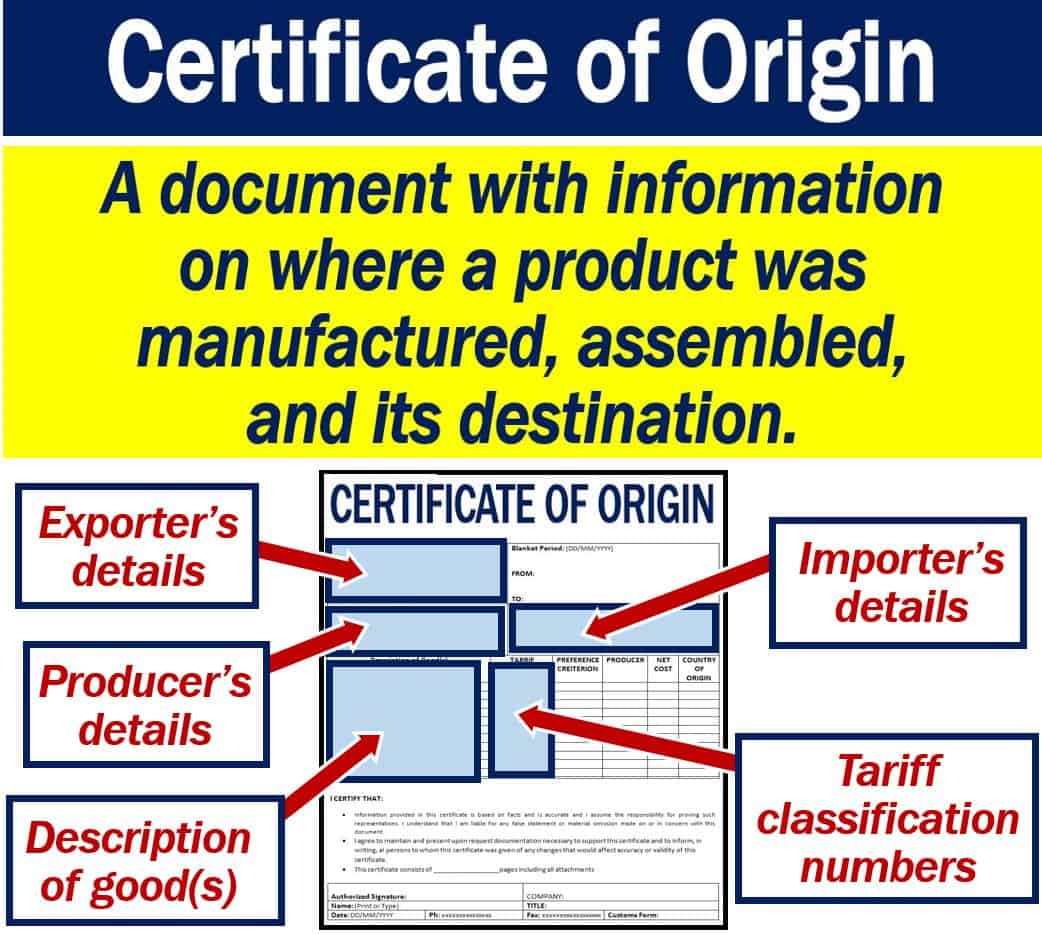What is a Certificate of Origin? Definition and example
A Certificate of Origin or CO is a document that indicates where a product came from. In other words, where the manufacturer that made the product is. We use this document when companies and other entities trade internationally, i.e., when they import and export. It is also a requirement in many trade agreements.
The Certificate of Origin has information about the product, such as its destination and country of export. It also contains a description of the good. In this context, the word ‘good’ means ‘product.’
The Certificate of Origin can show where different components of the final product were made. It also tells us whether that country manufactured and processed it completely.
Origin may be two countries
A Chinese manufacturer, for example, may have made parts of a computer. However, a company in the United States assembled them. Therefore, the origin of the product is, in fact, two countries.
The International Chamber of Commerce has the following definition of the term:
“A Certificate of Origin (CO) is an important international trade document that certifies that goods in a particular export shipment are wholly obtained, produced, manufactured or processed in a particular country.”
“They also serve as a declaration by the exporter.”

Tariffs
Having the Certificate of Origin of a product helps determine whether the importer must levy a tariff. Tariffs are taxes or duties.
It also helps that country apply any trading policies it may have with the product’s country of origin.
Policies and tariffs may vary. They depend on the trade agreements that the importing and exporting countries have.
For example, the EU customs agreement allows countries within the EU to trade freely without having to pay duties. EU stands for European Union.
If a product enters a country without a proper Certificate of Origin, there is a higher risk of delay. There is also a greater risk of penalties, i.e., fines, or even the outright confiscation of the product.
Types
There are two types of certificates: 1. Non-preferential or ordinary COs. 2. Preferential Cos.
Non-preferential
This is the most common type. A non-preferential CO specifies that the good is not eligible for lower tariffs or preferential treatment.
Preferential
A preferential certificate shows that the product qualifies for lower tariffs. It will also specify other exemptions that may exist in a trade agreement.

